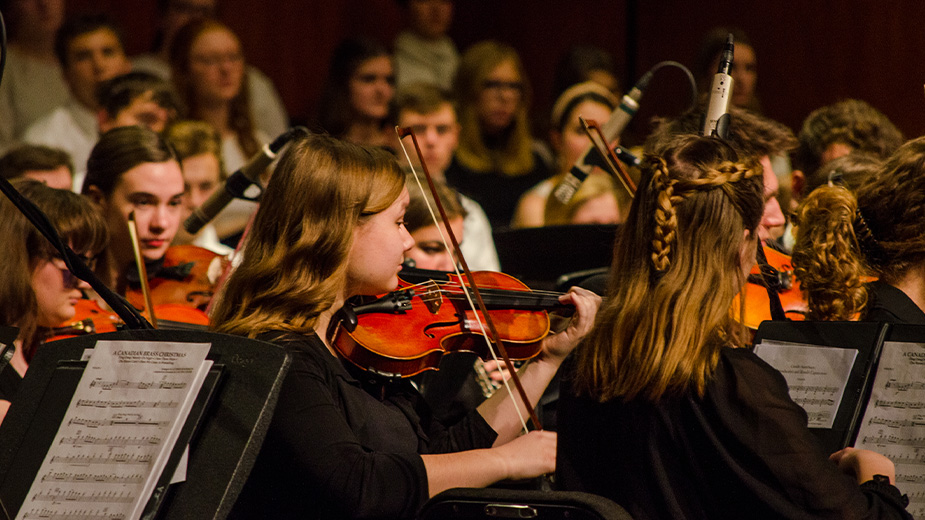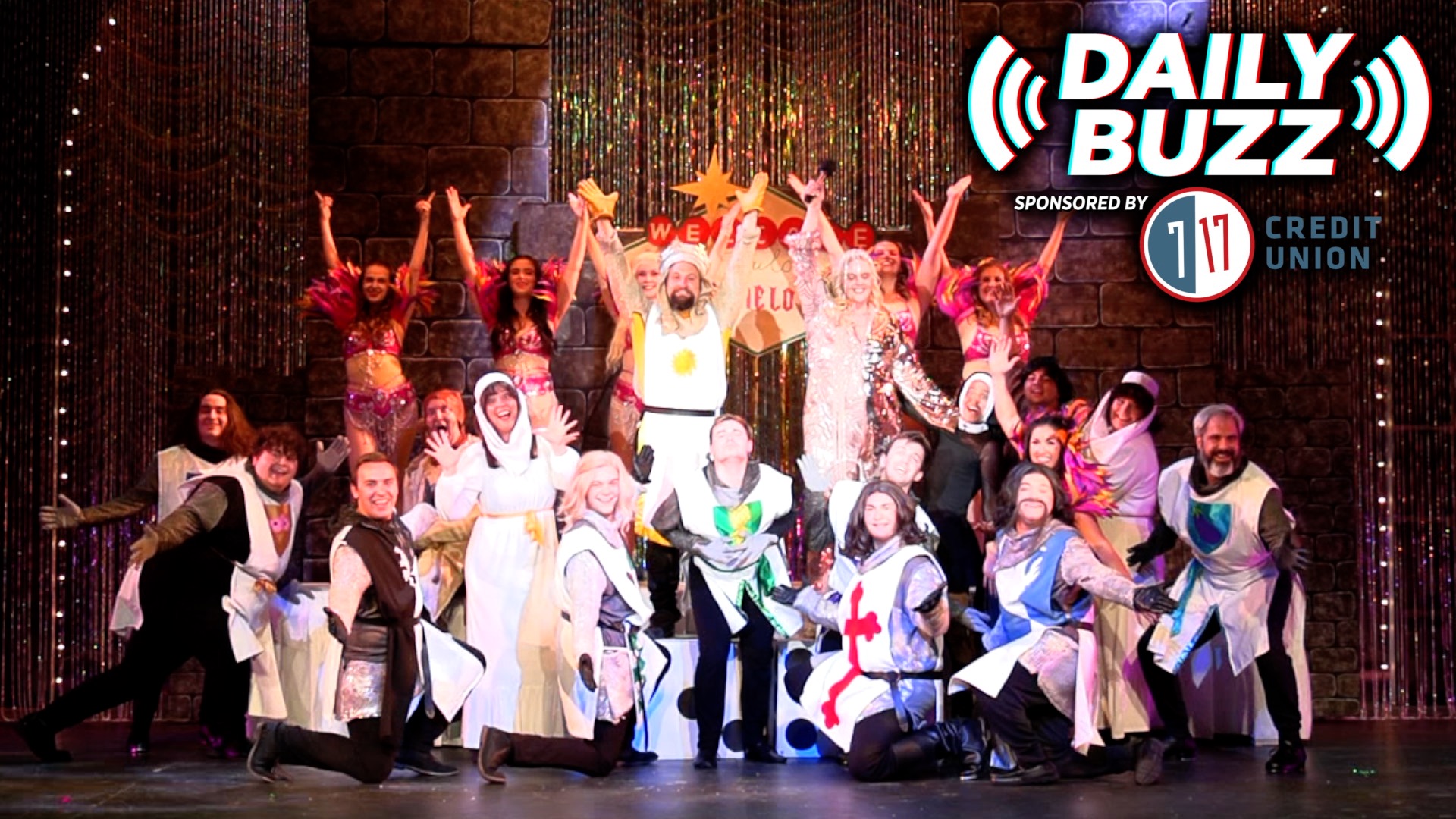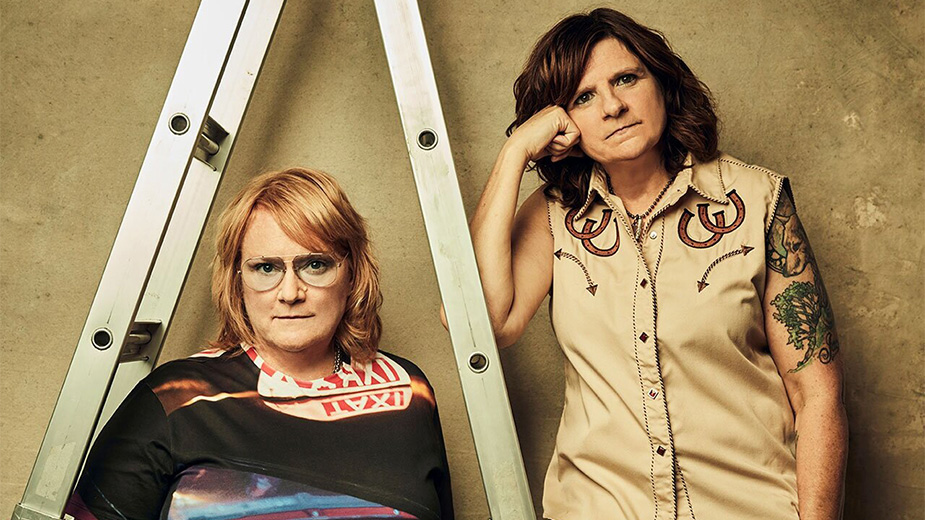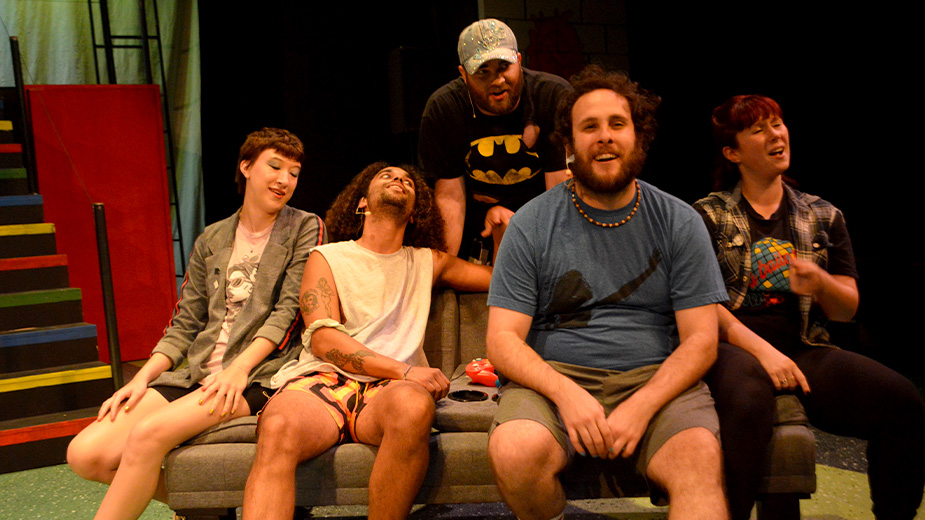College to Premiere Beethoven Symphony Created with AI
GROVE CITY, Pa. – The Grove City College Orchestra this month will perform the world premiere of the first artificial intelligence-generated attempt to complete Beethoven’s unfinished “10th Symphony.”
“Symphony (After Beethoven)” was created two decades ago by California-based composer and scientist David Cope using AI, but it has never been performed live.
The first movement of the piece will comprise the first half of the orchestra’s April 28 concert, which will start at 7:30 p.m. in Ketler Auditorium on the GCC campus. The show will conclude with Beethoven’s “First Symphony.”
Admission is free and open to the public. A livestream will be available at gcc.edu/livestream.
Beethoven died in 1827, leaving behind dozens, perhaps hundreds, of sketches for an unfinished symphony. Composers and musicologists have long been fascinated with the idea of completing the work, with varying success.
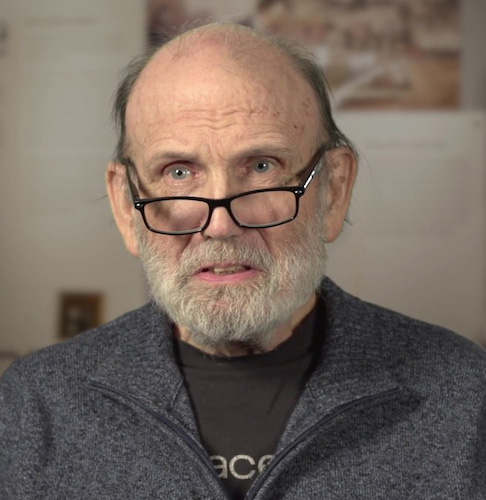
“This is the sort of piece that has kept the imaginations of conservatory kids for quite some time. There are even novels written about it,” said GCC music technology instructor Mark Wasilko, who led the effort to get the piece performed. Wasilko is GCC’s music recruiting and technology coordinator.
Jeffrey Tedford, chair of the music department and director of orchestras at GCC, is conducting the performance.
Cope, 81, is often referred to as the “godfather of AI composition.” A retired author, composer and professor of music at the University of California at Santa Cruz, he took up the Beethoven project in the late 1990s. Artificial intelligence is the growing field in which computers complete tasks that normally require human intelligence.
Cope used the sketches and a model of Beethoven’s entire musical output as the basis to finish “Symphony (After Beethoven),” according to Wasilko, who met Cope when he was doing graduate research. For a variety of reasons, it “sat on a shelf for two decades,” he said.
“One day Cope mentioned it, offhand, to me. … I asked him if I could have a copy of the score and kept it in the back of my mind to get it performed one day,” he said.
The growing ubiquity of AI in our everyday lives – and the ongoing debate over the implications of that – provided an opportunity.
“I thought, why not now? Surely there is an interested audience. And why not Grove City College? Beyond the school having many students and faculty interested in the meeting of the arts and STEM, a Christian school is uniquely positioned to approach questions of how AI will affect the future of humanity from a made-in-the-image-of-God worldview,” Wasilko said.
He has remained in contact with Cope over the years and obtained the piece from him.
[Cope] has been involved in the process,” Wasilko said. He originally intended to come to the college for the premiere, but the octogenarian and his wife were unable to make it.“But he said he will catch the livestream,” Wasilko said.
Cope, he said, was disappointed that only the first of the symphony’s four movements will be performed. The other movements require a choir, which was not feasible, he explained.
“I hope to premiere the rest of the movements within the next couple of years,” Wasilko said.
The Grove City College instructor met Cope via computer teleconference “back before Zoom was the norm,” he said. They stayed in touch mainly by email ever since.
The Grove City performance will be recorded and archived. Musicians and others will be able to watch the performance any time they want, in perpetuity, Wasilko said.
Reaction
Students performing “Symphony (After Beethoven)” are approaching the work with some of those questions in mind, according to Jeffrey Tedfor, music professor and department chair, who directs the 81-member GCC orchestra. He surveyed students as they rehearsed the AI composition and found most were wary of the idea but saw the value in engaging with it through performance.
“I had no idea what to expect, and I am positively surprised at what the AI was able to create,” Anne Leaman, principal viola, said. “Yes, not everything is perfect, and that’s OK because it shows why we still need humans to compose music and how technology can be an aid to composers.”
Laura Austin, second violin, was skeptical at first. “Even if it ends up sounding as nice as something a human – such as Beethoven – composed, it seems to me that the humanity behind it is lost,” she said.
Kendra Schoeppner, second violin, noted that even if the music is AI-written, “it is still the musician’s job to interpret it.”
Matthew Runninger, principal oboe, said, “I still don’t think I will ever prefer AI music over man-made music, but playing through this piece is showing me how there is definitely still potential in this field.”
Logan Green, principal percussion, also sees the potential. “Give it a chance. It’s not Beethoven, but the concept itself allows for creative thinking and very active listening,” he said.
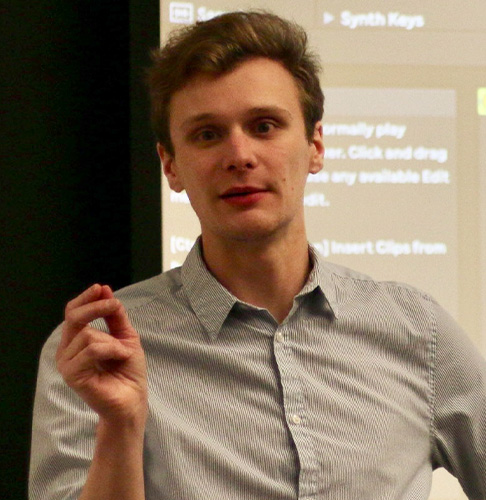
Beethoven is the perfect composer to “bring back to life through cybernetic alchemy,” Wasilko said. “If he were alive today, I’d bet he’d use AI. He was a serial innovator who added newly created brass instruments to the orchestra and stretched and pushed the forms and tonality of his day.”
“‘Symphony (After Beethoven)’ is so vital because it’s a piece of AI music that can show that there’s something of ourselves in all of the ones and zeroes, something of David Cope that lives in EMI,” Wasilko said.
He noted that Cope’s AI-created piece is 22 years old. “That’s old for AI,” Wasilko said, “and it colors the lukewarm reaction to it.”
Nevertheless, Wasilko said he likes the AI-created symphony.
“It’s not as well done as a symphony that Beethoven wrote, but serious musicians will find the melodic content is strong, perhaps as strong as anything Beethoven ever did,” he said.
“As it continues, the musical development is weaker, but it’s still worth digesting and talking about.”
Wasilko likens it to an old black and white movie from the early days of Hollywood. They are studied because they are a part of history more than for how great they are, he explained.
Pictured at top: The Grove City College Orchestra performs.
Copyright 2024 The Business Journal, Youngstown, Ohio.
